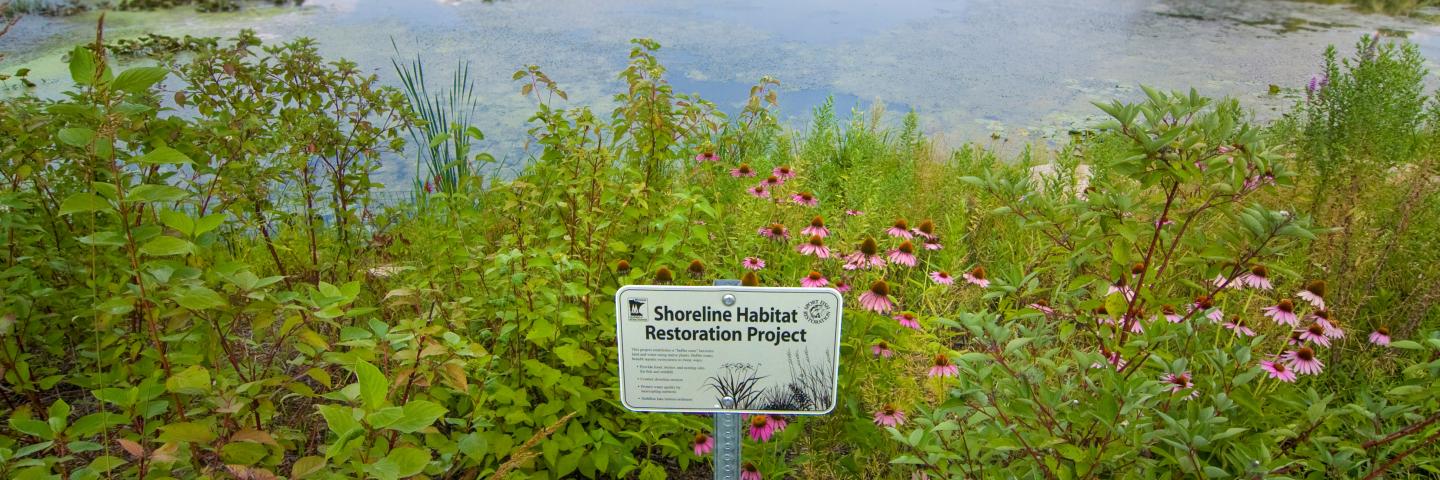Minnesotans cherish their access to clean water. Protecting and restoring water quality is therefore one of the MPCA's core areas of focus. Through intensive water-quality monitoring, we protect healthy bodies of water and identify others that fail to meet water quality standards, making recommendations for restoring them.
The agency completed its first 10-year monitoring cycle for the state’s 80 watersheds in 2018. The agency’s watershed approach in the second cycle involves:
- intensively monitoring a focused set of stream and lake water conditions in each watershed to track progress.
- adding sites needed by local water managers.
Partnering agencies and watershed stakeholders — such as counties, watershed organizations, soil and water conservation districts, and residents — use MPCA information to develop local water plans and make improvements to reach water quality goals.
To see the results of the MPCA’s monitoring in your region, see Watershed information.
Prioritizing protection
Though most Minnesota lakes and rivers are meeting water quality standards, state and local water organizations typically focus on improving poor water quality. However, it's more cost effective to protect high-quality waters than to restore degraded waters. The MPCA, Minnesota Department of Natural Resources, and Board of Soil and Water Resources developed guidance for prioritizing protection strategies in local water plans, where appropriate.
Minnesota's Clean Water Fund goals
In conjunction with six other state agencies, the MPCA identified the outcomes we expect to achieve over the 25-year life of the Clean Water Fund, established by the 2008 Clean Water, Land and Legacy Amendment. Learn about our progress toward our goals:
Education and outreach
MPCA staff work to educate the public, local governments, businesses, and other organizations on a variety of pollution prevention issues, such as:
- collaborating on the We Are Water project with the Minnesota Humanities Center and other state and local organizations.
- engaging thousands of visitors each year at the Minnesota State Fair with the Eco Experience interactive exhibits about waste reduction, pollution prevention, and sustainable living.
- helping businesses reduce their use of hazardous chemicals.
- promoting agricultural land use practices that protect rivers and streams.
Protecting groundwater
Preventing groundwater contamination protects one of Minnesota’s most critical resources.
Several state agencies, including the MPCA, share in the responsibility to protect groundwater.
- The MPCA monitors the condition of groundwater and works to clean up groundwater contamination at sites around the state.
- The Minnesota Department of Health (MDH) is responsible for ensuring that Minnesotans have safe and adequate drinking water. The MDH source water protection program safeguards groundwater and surface water used for drinking.
- The Minnesota Department of Natural Resources issues permits to users of large amounts of groundwater in the state.
- The Department of Agriculture's Nitrogen fertilizer management plan is the state’s blueprint for preventing and minimizing the impacts of nitrogen fertilizer on groundwater.
- In the Twin Cities metropolitan area, the Metropolitan Council is addressing groundwater depletion with its Water supply plan.
Point-source vs. nonpoint-source pollution
Environmental regulators divide the sources of water pollution into point and non-point. Point-source pollution comes from sources such as wastewater treatment plants or industrial facilities, which are subject to environmental regulations and often need water quality permits. Nonpoint sources include things like precipitation runoff from lawns or farm fields, sediment from eroding streambanks, bacteria from pet waste, and faulty septic systems. These nonpoint sources are typically not subject to specific regulation, yet they represent the largest combined contribution (an estimated 86%) to the state’s water pollution.
The Minnesota Nonpoint Source Management Program Plan lays out our approach for addressing nonpoint-source pollution in water, and provides guidance for federal, state, and local planning efforts. Nonpoint-source water pollution control proposals must be cited in this document to be considered for Section 319 funding.
